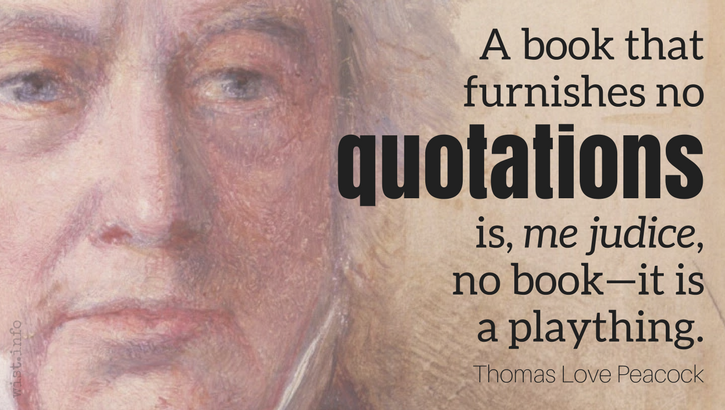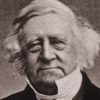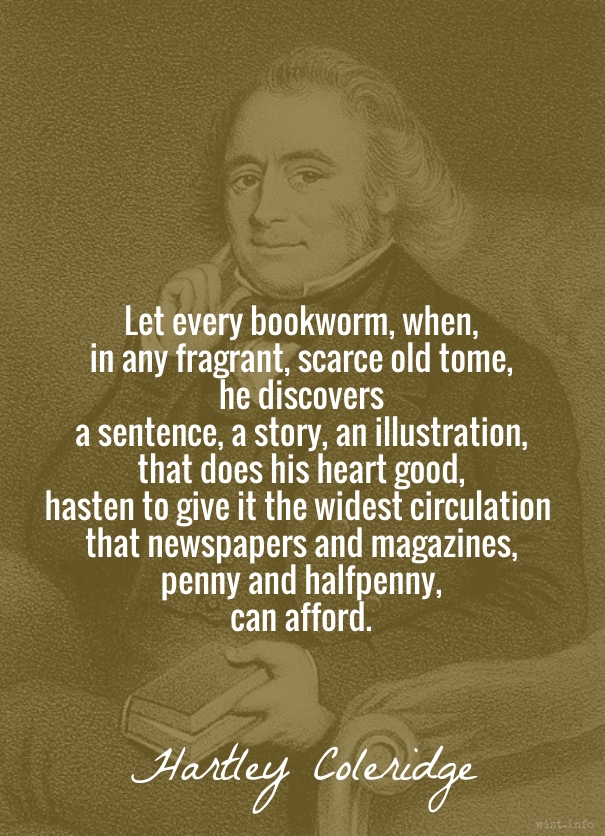I protest, for about the hundredth time, against the slipshod method of quoting a mere author’s name, without any indication of the work of that author in which the alleged quotation may be found. Let us have accurate quotations and exact references, wherever such are to be found. […] A quotation without a reference is like a geological specimen of unknown locality.
Walter William Skeat (1835-1912) British philologist and cleric
Notes and Queries, 6th Series, vol. 9 (1884-06-21)
(Source)
Quotations about:
citation
Note not all quotations have been tagged, so Search may find additional quotes on this topic.
My quarrel with him is, that his works contain nothing worth quoting; and a book that furnishes no quotations is, me judice, no book — it is a plaything.
Thomas Love Peacock (1785-1866) English novelist, satirist, poet, merchant
Crochet Castle, ch. 9 (1831)
(Source)
Why are not more gems from our early prose writers scattered over the country by the periodicals? Selections are so far from preventing the study of the entire authors that they promote it. Who could read the extracts which Lamb has given from Fuller, without wishing to read more of the old Prebendary? But great old books of the great old authors are not in every body’s reach; and though it is better to know them thoroughly than to know them only here and there, yet it is a good work to give a little to those who have neither time nor means to get more. Let every bookworm, when, in any fragrant, scarce old tome, he discovers a sentence, a story, an illustration, that does his heart good, hasten to give it the widest circulation that newspapers and magazines, penny and halfpenny, can afford.
Hartley Coleridge (1796-1849) English poet, biographer, essayist, teacher
Biographia Borealis: or, Lives of Distinguished Northerns, “Roger Ascham” (1833)
(Source)
Speaking of the practice of including brief extracts -- quotations -- from famous authors in magazines and newspapers to fill up columns or create a break between stories. Ironically, this extracted quotation -- slightly paraphrased -- was widely circulated in the mid-late 19th and early 20th Century misattributed to his father, Samuel Taylor Coleridge, or simply labeled as "Coleridge" without citation, leading to the same confusion.
Usually quoted more succinctly as: "Why are not more gems from our great authors scattered over the country? Great books are not in everybody's reach; and though it is better to know them thoroughly, than to know them only here and there; yet it is a good work to give a little to those who have neither time nor means to get more. Let every bookworm, when in any fragrant, scarce old tome he discovers a sentence, a story, an illustration, that does his heart good, hasten to give it."
I suppose every old scholar has had the experience of reading something in a book which was significant to him, but which he could never find again. Sure he is that he read it there, but no one else ever read it, nor can he find it again, though he buy the book and ransack every page.
ANTONIO: Mark you this, Bassanio,
The devil can cite Scripture for his purpose.
An evil soul, producing holy witness,
Is like a villain with a smiling cheek,
A goodly apple rotten at the heart.
O, what a goodly outside falsehood hath!William Shakespeare (1564-1616) English dramatist and poet
Merchant of Venice, Act 1, sc. 3, l. 106ff (1.3.106-111) (1597)
(Source)








